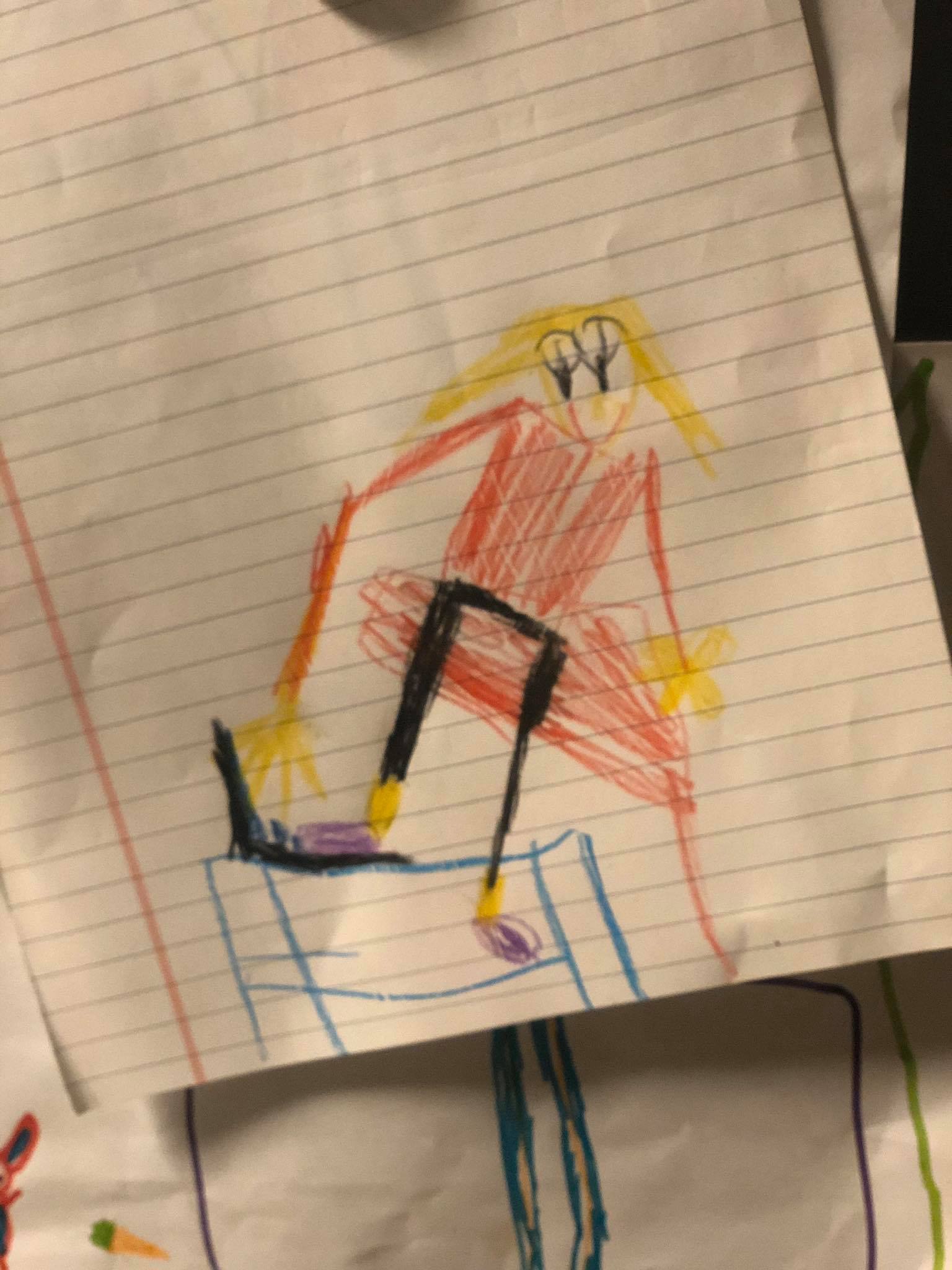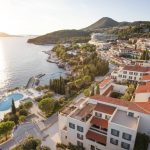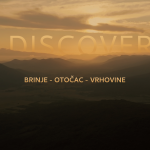April 12, 2020 – Do foreigners in Croatia feel more or less safe sitting out COVID-19 here than in their home country, and what are their experiences? A new series on Total Croatia News, with Natalia Zielinska from Poland in Ogulin as the 36th contributor.
Oxford University recently published some research on government responses to coronavirus which showed that Croatia currently has the strictest measures in the world. While inconvenient, this is a good thing in terms of reducing the spread of the virus, and I am certainly not alone in my admiration of the official Croatian handling of this crisis in recent weeks, both in terms of action and communication.
But what do other expats here think? And how does it compare with the response in their home country? Would they rather sit this one out here or there? A new series on TCN, we will be featuring expats from all over the world to see what their views are on life in corona Croatia rather than back home. So far we have heard from expats in Croatia from Romania, USA, Ireland, UK, Mexico, Argentina, Spain, Singapore, Holland, Canada, India, Hong Kong, Venezuela, Latvia, China, Honduras, Hungary, Moldova, South Korea, Japan, the Philippines and Germany. Next up, Natalia Zielinska from Poland in Ogullin.
If you would like to contribute to this series, full details are below this interview.
Hello, I’m Natalia. I have lived in Croatia permanently since 2013, I run a company here that deals with consulting, preparing and implementing EU projects. I run several projects aimed at developing entrepreneurship and entrepreneurial skills in Croatia. Unlike most people who are in this business, I chose Ogulin, a small mountainous town right between Zagreb and Rijeka, for my life destination.
Firstly, how are you? Are you alone/with someone? Tell us a little about your situation and sanity levels.
I’m fine now. I’m not alone, we have a family and our little children here, so I definitely don’t miss being around people. Quite the opposite. At the beginning, I was quite angry, disappointed because things got out of control, and I followed all the news in Poland and Croatia with tension. The worst thing was the ignorance, the virus started to spread, we didn’t know if it was really a threat or some worse form of the common flu. I’ve already come to terms with the situation, but I’m still abnormally concerned about my family in Poland.
What struck me most was the closure of the borders, Poland was the first to introduce these measures.
Then I realised that if something bad happens to my mum who is alone, then realistically I can’t even get to her, this feeling of powerlessness is terrible. But now that the situation is stabilising and we know, roughly, what’s going on around us.
So, in my private life, I’m now stable, I’m even enjoying this new rhythm where I’m constantly surrounded by children.
I went through the same stages in business – disappointment, anger and slowly getting used to the situation. Now, I’m continuing doing business peacefully, but I’m also increasingly trying to help and support other entrepreneurs who are in a bad situation.
In addition, I’m adapting to this new situation, developing an online business, focusing on our long-term partners, our clients. We’re building a relationship, we’re no longer interested in short-term earnings. Currently, we’re spending more time and resources on volunteer work, counselling and support than we are on commercial activities, which may not be good business sense, but these times have shown that we are dependent on each other.
What do you think about the economic measures the government is taking, are they helping your business?
The first measures were not sufficient, but all thanks to the Voice of the Entrepreneur (movement) and other branch organisations, things were organised in time to find better conditions.
For now, these existing measures are more than good, I personally just care about the background, that is, how the state will be able to finance these measures, because we’re aware of the inefficiency of the public sector.
Each day, we have 20-30 inquiries regarding government measures, grants and loans.
Each day we submit 10 applications for working capital loans.
I can say that the crisis that has emerged will further purify this sector, in the way that there are entrepreneurs who are struggling for their businesses and employees, and we have some who are immediately retiring to protect their interests. I think that in a few months, we will return to a full and healthy environment, a digitised public sector, hopefully deprived of parasites, but on top of that, better quality, more resourceful and loyal entrepreneurs will somehow be winners in the whole situation.
A decision has been made to limit public procurement, which is explicitly detrimental to the economy, but I hope this decision will not apply to EU projects, which are now the main wheel in re-starting the economy.
When did you realise that corona was going to be a big issue?
When they closed the borders, when for the first time someone restricted me, a child of Solidarity, the EU and the free market, the elemental freedom of movement. It’s kind of a slight shock to us, ‘almost’ millennials.

What is your impression of the way Croatia is dealing with the crisis? How safe do you feel?
The Croatian Government has put adequate measures in place in time. Communication is great, the organisation is too, the other day, the headquarters came to our apartment because we have Zagreb license plates [to check we were meant to be where we are]. Everyone really is doing their job. What concerns me are irresponsible citizens, on the one hand, they complain about the restriction of liberties, and on the other, they don’t know how to respect the elementary rules of conduct. That way, we keep going around in circles.
Now compare that to your home country and how they are handling it. What is Croatia doing better/worse?
Croatia definitely has better measures for entrepreneurs, for example, while for example, the Poles have better measures for the cultural sector, those who are self-employed and micro-entrepreneurs.
The Poles also introduced measures to further accelerate the implementation of investments such as exemptions from public procurement obligations for certain funds. A page has been created with all the measures and direct links for application, in Croatia, we have some announcements and additions to them every day. There is no single channel of communication.
In Poland, unfortunately, the ruling forces forcing the presidential elections in May are trying to take advantage of the situation. In addition, a number of legal measures are introduced, using a situation when everyone’s attention is focused on the fight against COVID-19.
In Croatia, politicians behave correctly, I didn’t see anyone trying to score political points at the expense of the situation, finally, experts and those in the know joined the debate and subsequently organised the private sector.
In Poland, these initiatives are missing.
What’s the one thing you wish you had taken with you into self-isolation?
My phone. To be able to hear from everyone and follow everything that happens.
What is one thing you have learned about yourself, and one thing you have learned about others during this crisis?
I’ve realised how much I’m missing out on the development of my children, since I’ve been working from home, watching them all the time, and only now am I understanding some of their behaviours, their rules. We have a much better relationship.
I always had it on my conscience that we had a bad business model because people, and their problems, were always my focus. Then many people assured me that the purpose of a business was to make a profit. When that profit disappears in one day, or one month, the people remain – business and life partners you can rely on. I think the crisis has convinced me only of the correctness of my views.
And secondly, I’ve not learned anything new, as there are always individuals who are struggling, they find solutions and they are great and inspirational people, and there is always a crowd that just criticises and senselessly discusses things.
These situations better highlight both categories of people, so it’s a great opportunity to verify your friends and those on your list of business partners.
Thanks, Natalia. Stay safe and see you on the other side.
TCN is starting a new feature series on foreign experiences of sitting out COVID-19 here in Croatia compared to their home country. If you would like to contribute, the questions are below. Please also include a para about yourself and where you are from, and a link to your website if you would like. Please also send 3-4 photos minimum to [email protected] Subject Corona Foreigner
If you would be interested to record a video version for our partners www.rplus.video please let us know in the email. Thanks and stay safe.
Foreigners Self-Isolating in Croatia: Do You Feel Safer Than in Your Home Country?
Firstly, how are you? Are you alone/with someone? Tell us a little about your situation and sanity levels.
What do you think about the economic measures the government is taking, are they helping your business? (PLEASE IGNORE IF THIS DOES NOT AFFECT YOU)
When did you realise that corona was going to be a big issue?
What is your impression of the way Croatia is dealing with the crisis? How safe do you feel?
Now compare that to your home country and how they are handling it. What is Croatia doing better/worse?
What about official communications from the authorities, compared to your home country?
What’s the one thing you wish you had taken with you into self-isolation.
One thing you have learned about yourself, and one thing you have learned about others during this crisis.
TCN has recently become a partner in Robert Tomic Zuber’s new R+ video channel, initially telling stories about corona experiences. You can see the first TCN contribution from this morning, my video from Jelsa talking about the realities of running a news portal in the corona era below. If you would like to also submit a video interview, please find Robert’s guidelines below
VIDEO RECORDING GUIDE
The video footage should be recorded so that the cell phone is turned horizontally (landscape mode).
There are several rules for television and video news:- length is not a virtue- a picture speaks more than a thousand words
In short, this would mean that your story should not last more than 90 seconds and that everything you say in the report should be shown by video (for example, if you talk about empty streets, we should see those empty streets, etc.).
How to do it with your cell phone? First, use a selfie camera to record yourself telling your story for about a minute and a half. Ideally, it would be taken in the exterior, except in situations where you are reporting on things in the interior (quarantine, hospital, self-isolation, etc.). Also, when shooting, move freely, make sure everything is not static.
After you have recorded your report, you should capture footage that will tell your story with a picture, such as an earlier example with empty streets.
One of the basic rules of TV journalism is that the story is told in the same way as a journalist with his text. Therefore, we ask you for additional effort. Because we work in a very specific situation, sometimes you may not be able to capture footage for each sentence of the report. In this case, record the details on the streets: people walking, the main features of the city where you live, inscriptions on the windows related to the virus, etc.
The same rules apply if you are shooting a story from your apartment, self-isolation, quarantine. We also need you to capture footage that describes your story.
When shooting frames to cover your reports, it is important that you change the angle of the shot (in other words, shoot that empty street from several angles). Also, when shooting a detail, count at least five seconds before removing the camera to another detail.
The material should be about 5 minutes long (90 seconds of your report + frames to cover your story).
After recording everything, send us to Zagreb, preferably via WeTransfer to [email protected]
Wash your hands.










